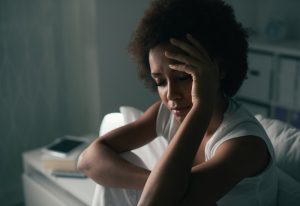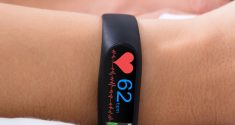New research has found that the risk of death from cardiovascular disease is multiplied in people who suffer from both hypertension (high blood pressure) and insomnia. And when stress, particularly work-related tension, is involved, this risk soars to three times the normal rate. The discovery that stress accompanied by insomnia boosts the risk of death indicates that getting enough quality sleep is even more important than previously believed.
Insomnia Boosts Risk of Death from Cardiovascular Disease

Karl-Heinz Ladwig, who headed up the study, noted that temporary or fleeting stress and insomnia should not be a concern. One bad day at work, or one night of sleep difficulty, is not going to significantly raise your risks of developing cardiovascular disease. However, coupled with long-term unrelieved stress, the findings suggest that chronic insomnia boosts the risk of death from cardiovascular disease. The Technical University of Munich professor added that prolonged insomnia and stress causes a drain of energy on the body, which is what can raise the risks of early death.
Poor Sleeping Habits Contribute to Hypertension
If you suffer from hypertension, you might want to look at your sleeping patterns. Studying the sleep habits of more than 225,000 subjects, researchers found that not getting enough sleep raised the risks of developing high blood pressure. Specifically, the risks were increased in those subjects who got only six or fewer hours of sleep on an average night. In this study, researchers found that insufficient sleep resulted in a 20 percent increase in the risk of developing high blood pressure.
In a different study, researchers examined the sleeping patterns of 270 hypertensive patients. They focused on those patients with resistant hypertension, meaning their conditions couldn’t be alleviated with up to four blood pressure medications. These patients either had difficulty falling asleep, or spent more of their time in bed awake than asleep. Women were particularly susceptible to these types of sleep difficulties.
These findings are especially troubling because sleep should be a period of rest for the cardiovascular system. Since the heart doesn’t have to work as hard, it’s normal to observe a 15 percent drop in cardiovascular activity during sleep. While a lack of sleep can raise the risks of developing hypertension, the presence of the condition can also affect one’s ability to sleep. This suggests an unhealthy cycle that can affect overall health over time.
Lifestyle Changes Can Help You Sleep Better
While sleep helps you rest and recharge, it isn’t a restful state for all of your body’s processes. While you’re sleeping, your body is repairing itself and revitalizing various systems, including the cardiovascular system. Failing to get sufficient sleep, which means seven hours or more of uninterrupted sleep, can inhibit these bodily functions and compromise your overall health. Fortunately, a few lifestyle changes may be all you need to fall asleep quickly and sleep more soundly throughout the night.
Eliminate Stimulants
The first thing you should do is consider what might be preventing you from falling asleep. For many people, eliminating or reducing their caffeine intake is essential. If you can’t avoid caffeine altogether, you should limit your intake to the morning and early afternoon hours. There should be a time-lapse of six to eight hours between your last caffeinated beverage and your bedtime.
Shut Off Electronic Devices
The brain releases hormones that regulate sleep and wakefulness, but the release of these hormones is determined by the circadian rhythm. Also known as your internal clock, the circadian rhythm helps your brain determine when you should be awake and when you should be getting sleepy. This is why you feel less energetic in the winter months when it gets dark earlier in the day. It’s also why you still feel wide awake after looking at a computer monitor or smartphone screen; the blue light emitted by the screen disrupts your circadian rhythm. For this reason, shutting devices off one hour before bedtime is recommended.
Develop a Relaxation Ritual

Examine Your Sleeping Quarters
Even the most frugal people would do well to be a little more extravagant when it comes to their sleeping quarters. Your bedding should be soft and comforting, so consider replacing it every few years to keep your sleep environment in good condition. If excess lighting filters into your room from outside, try blocking the windows or consider wearing an eye mask to bed. If sounds keep you up at night, you might also consider wearing earplugs to bed. For some people, the sound of their own breathing keeps them awake, so wearing earplugs may be counterproductive. In this case, setting relaxing music to play on a timer may be the answer.
If you have employed these lifestyle changes and still struggle with sleep, you may need to consult your doctor. While one or two nights of troubled sleep will happen from time to time, a prolonged sleep disorder can have serious consequences for your overall health. Getting enough quality sleep will help you protect your cardiovascular health, as well as ensuring other aspects of your health are at optimum levels.







